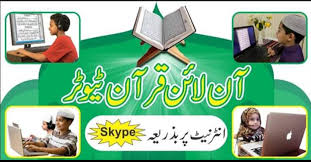In today’s interconnected world, the way we learn and impart knowledge has undergone a revolutionary transformation. Among the many subjects benefiting from this digital renaissance is the Quran. Online Quran teaching has emerged as a significant and accessible means for individuals across the globe to engage with the sacred text, transcending geographical and temporal barriers. This article delves into the evolution, advantages, and future prospects of online Quran teaching.
The Evolution of Quranic Education
Traditionally, Quranic education has been rooted in face-to-face interaction, where students gather in mosques or madrassas to learn from a qualified teacher, often known as a Hafiz or Sheikh. This method, steeped in centuries of tradition, emphasizes the oral transmission and memorization of the Quran. While effective, this approach has its limitations, primarily accessibility issues for those living in remote areas or non-Muslim majority countries.
The advent of the internet and digital communication tools has revolutionized this paradigm. The development of online Quran teaching platforms has made it possible for anyone with an internet connection to access high-quality Quranic education. These platforms leverage various technologies, including video conferencing, interactive whiteboards, and digital libraries, to provide a comprehensive and engaging learning experience.
Advantages of Online Quran Teaching
-
Accessibility and Convenience: One of the most significant advantages of online Quran teaching is its accessibility. Students no longer need to travel long distances to find a qualified teacher. They can schedule classes at their convenience, fitting Quranic studies into their busy lives. This flexibility is particularly beneficial for working adults, students, and parents with young children.
-
Personalized Learning: Online Quran teaching allows for a more personalized learning experience. Students can progress at their own pace, receiving individual attention from their teachers. This customization ensures that each student fully comprehends and retains the lessons, enhancing the overall learning experience.
-
Diverse Teaching Methods: The use of multimedia tools in online Quran teaching enriches the learning process. Audio-visual aids, interactive exercises, and digital recitations can make lessons more engaging and effective. These varied teaching methods cater to different learning styles, helping students grasp complex concepts more easily.
-
Access to Qualified Teachers: Online platforms connect students with qualified Quran teachers from around the world. This global pool of educators ensures that students receive instruction from experts in Quranic studies, regardless of their location. It also allows learners to benefit from diverse perspectives and teaching styles.
-
Safety and Comfort: The ability to learn from home provides a safe and comfortable environment for students. This is especially important for young children and women who may face cultural or logistical challenges attending in-person classes. Learning in a familiar setting can also reduce anxiety and improve concentration.
Challenges and Solutions
Despite its many advantages, online Quran teaching is not without challenges. Some common issues include:
-
Technical Difficulties: Internet connectivity problems and technical glitches can disrupt classes. To mitigate this, reliable internet access and user-friendly platforms are essential. Additionally, having technical support available can help resolve issues quickly.
-
Lack of Physical Interaction: The absence of face-to-face interaction can be a drawback for some learners. However, many online Quran teaching platforms address this by incorporating live video sessions, allowing for real-time interaction between teachers and students.
-
Discipline and Motivation: Maintaining discipline and motivation can be challenging in an online learning environment. Setting regular schedules, creating a structured curriculum, and providing regular feedback can help keep students engaged and committed to their studies.
The Future of Online Quran Teaching
The future of online Quran teaching looks promising, with continuous advancements in technology poised to enhance the learning experience further. Here are some trends and developments to watch:
-
Artificial Intelligence (AI) and Machine Learning: AI can be used to create personalized learning plans, provide instant feedback, and even assist in pronunciation and memorization through advanced algorithms. These technologies can make Quranic studies more efficient and tailored to individual needs.
-
Virtual and Augmented Reality (VR/AR): VR and AR can create immersive learning environments, allowing students to experience historical Islamic sites or engage in interactive Quranic recitations. These technologies can make learning more engaging and memorable.
-
Mobile Learning: With the increasing use of smartphones, mobile learning apps are becoming more popular. These apps offer on-the-go access to Quranic education, enabling students to learn anytime, anywhere. Features like offline access and progress tracking enhance the convenience and effectiveness of mobile learning.
-
Community and Collaboration: Online Quran teaching platforms are increasingly incorporating social and collaborative features. Forums, discussion groups, and peer-to-peer learning opportunities foster a sense of community and encourage students to share knowledge and support each other.
-
Enhanced Security and Privacy: As online education grows, ensuring the security and privacy of students is paramount. Advanced encryption and secure communication channels will be crucial in maintaining the trust and safety of learners and educators alike.
Conclusion
Online Quran teaching represents a harmonious blend of tradition and technology, offering an accessible, flexible, and effective means of learning the Quran. While challenges exist, the continuous evolution of digital tools and methodologies promises to address these issues, making Quranic education more inclusive and enriching. As we move forward, the integration of cutting-edge technologies and innovative teaching methods will further enhance the online Quran learning experience, ensuring that the sacred teachings of the Quran are accessible to all, regardless of location or circumstance.

